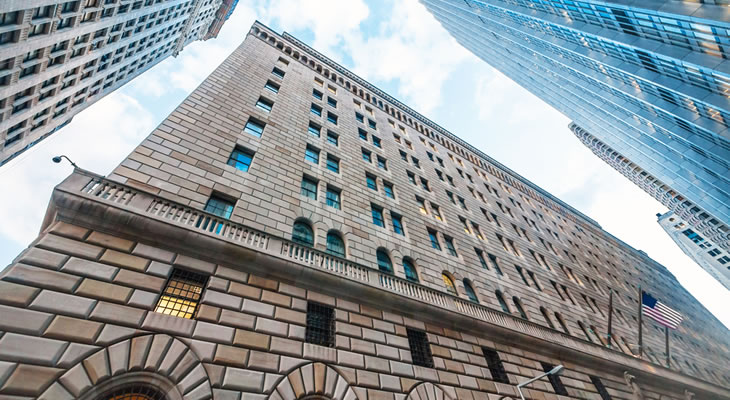Pound to US Dollar Exchange Rate Up on Federal Reserve’s Dovish Tone
While the US Dollar has firmed over the past week, the Pound Sterling to US Dollar (GBP/USD) exchange rate has recovered this week’s losses as the US Dollar’s (USD) recent gains were seen as overdone in the face of a more dovish Federal Reserve.
Since opening this week at the level of 1.2528, GBP/USD was on track to see another week of losses after tumbling to hit a low of 1.2445 on Tuesday. This was the worst GBP/USD level in over two years, since the first half of 2017.
Since yesterday though, Federal Reserve officials have shown more dovish signals and GBP/USD has recovered most of this week’s losses. At the time of writing today, GBP/USD was trending closer to the week’s opening levels again.
The US Dollar outlook became more bearish in reaction to the Fed’s dovishness, which caused Fed interest rate cut bets to rise. This made it easy for even a limp Pound (GBP) to advance.
Pound (GBP) Exchange Rates Lack Drive amid Gloomy Political and Economic Outlooks
Much of the Pound to US Dollar (GBP/USD) exchange rate’s recovery since yesterday has been more due to US Dollar weakness than any notable demand for the Pound, as Brexit uncertainties continue to dominate the British currency’s outlook.
Investors are hesitant to buy the Brexit-battered Pound, as Britain’s potential candidates to be Prime Minister have both indicated that they would be willing to embrace a worst-case scenario no-deal Brexit.
On top of this, Britain’s economic outlook has also been weakened by Brexit uncertainties.
While yesterday’s UK growth rate stats did beat expectations and help the Pound to recover against the US Dollar, other figures like industrial and manufacturing production fell short and kept investors anxious about how Brexit was impacting Britain’s economy.
Bets that the Bank of England (BoE) could cut UK interest rates instead of hike them have been rising lately, keeping the Pound highly pressured.
US Dollar (USD) Exchange Rates Tumble as Fed’s Tone Becomes More Dovish
Due to some stronger than expected US Non-Farm Payroll data at the end of last week, investors had been paring back bets of an aggressively dovish monetary policy tone from the Federal Reserve.
This week, ahead of Wednesday’s key Federal Reserve developments, investors had been buying the US Dollar higher as well, some even betting that the Fed could hold off on a July interest rate cut if US data continued to impress.
However, in a testimony yesterday, Fed Chairman Jerome Powell took an even more dovish tone on the US economic outlook than expected.
Powell played up concerns about global risks in trade tensions, as well as the Brexit process, and heavily signalled that the bank would cut interest rates during its policy decision later this month.
His dovish tone led some analysts to speculate that there could be as many as three interest rate cuts from the Fed over the next year. This left the US Dollar weaker again as rate cut bets rose again.
Pound to US Dollar (GBP/USD) Exchange Rate to be driven by Central Bank Bets
Could the US Dollar continue to tumble on rising Federal Reserve interest rate hike bets? For now, the US Dollar selloff may not run much further as an aggressive 50 basis point cut this month is still seen as unlikely.
This is leaving investors anticipating further US data, to see the direction the US economy is headed in and further inform Fed speculation.
As a result, US Dollar investors are currently most eagerly awaiting this afternoon’s key US inflation rate figures from June.
If US inflation falls short of forecasts, expectations for US price pressures will weaken, Fed rate cut bets could rise, and the US Dollar would see further losses.
Upcoming speeches from Fed officials before the end of the week could also influence the US Dollar.
As for the Pound, any surprising developments in UK politics and Bank of England (BoE) speculation could also influence the Pound to US Dollar (GBP/USD) exchange rate.


Comments are closed.